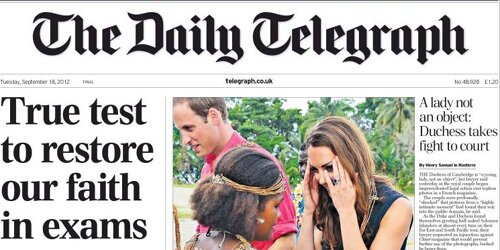Recent Articles
Sorry deniers – worries of global warming are up again
Over a short period at the start of 2010, belief that climate change is real and manmade fell sharply.
Since then, it recovered slightly but had remained lower than it was at the end of 2009.
But now three polls have shown that the decline has been fully reversed.
continue reading… »
Britons care more about the environment than politicians realise
Other than the seriously environmentally attentive, few people will have noticed anything going on with the Rio+20 conference .
The latest Mori issues index shows just 3% identifying green problems as among the main issues facing Britain – compared with 58% choosing the economy (worth remembering that that 42% didn’t choose that either).
So Cameron was probably playing it safe by not going. But despite all that, public opinion was actually quite receptive to the UK playing a major part in the negotiations at Rio.
continue reading… »
The public is paying more attention to Leveson than Westminster thinks
The Leveson Inquiry is increasingly being talked about as a Westminster soap opera, of no interest to the bulk of the country who have better things to do with their time than read (or write) political blogs.
And so Labour’s continued efforts to keep the news focus on Jeremy Hunt have frustrated those who think the party is missing much more valuable opportunities to attack the government on the economy. The former Labour general secretary, Peter Watt, argued that for the vast majority it’s “a hugely embarrassing waste of time and money”.
But public opinion data suggest a more mixed response to Leveson.
continue reading… »
Who still wants a Monarchy? Er, most of us
There have already been two polls on opinion about the monarchy over the last week and I’m sure there’ll be more in the coming days.
The Guardian last Thursday found a ‘surge in royalism’ despite doubts about whether Charles should take the throne.
Another in today’s Independent apparently found similar lack of excitement about Charles.
continue reading… »
Would Labour be mad to promise an EU referendum?
Number five on my list of trends to watch this year was Britain’s attitudes to the EU.
In 2011, opinion had swung towards Britain’s staying a member and I guessed the trend would continue as an EU vote became increasingly plausible.
What I didn’t realise was that I was writing at the moment when Britain’s love for Europe was at its peak.
continue reading… »
How the mood is shifting against the government’s cuts
I’ve been following for a while a YouGov question on the central issue of how we deal with the crisis: should the government focus more on growth or on reducing the deficit?
When I last wrote about it the public were quite evenly split, following a shift towards more people wanting attention on growth.
Since then, the government’s emphasis on reducing the deficit regained support in the first quarter of this year.
How the Tory collapse moved leaders ratings
It’s well established that the Tories’ ‘worst week’ – the granny tax, 50p tax cut, donorgate, pastygate and petrolgate – hit them badly in polls. Labour’s lead has been up to 10pts, with the Tories scratching around in the low 30s.
But the impact on the party leaders’ ratings hasn’t been that straightforward. Surprisingly, Cameron emerged largely unscathed, although the others got a boost.
For this comparison, I’m looking at data from three Populus polls. Each asked respondents to score how ‘positive’ they feel about the leaders, on a score of 0-100.
The first poll comes from December ‘10/January ’11, the second from February ’12 (before the worst week), and the third from March/April ’12 (after the worst week).
The groups I’m looking at are based on vote at the last election, so these should be comparable across the three polls – though they often won’t be current party supporters/voters.
Looking at each of the leaders in turn:
Cameron

Despite the impact on the Tories’ vote intent score, Cameron himself seems to have been barely hit by the worst week.
But what’s striking is his score had already fallen sharply among his own party’s voters. While he still remains the most popular leader among his own voters, the gap now is much smaller than it was 15 months ago.
Miliband

As might be expected, Miliband’s scores have gone up among all groups since the worst week, with the largest overall increase.
Like Cameron, he experienced a dip in support among his own voters after the end of ’10, but unlike the Prime Minister, his score has increased again in the last month.
Miliband is now more popular than Cameron among 2010 Lib Dem voters – and is nearly as popular as Clegg among that group.
Clegg

Like Miliband, Clegg has seen a general – albeit smaller – lift after the worst week. He remains the least popular party leader, although still not by much.
His boost over the last month, particularly among 2010 Lib Dem voters, seems to reflect the effectiveness of the Lib Dem’s pre-Budget leaking. Clegg looks to have taken the credit for the popular side of things and escaped the associated blame for the rest of the goings-on.
It’s also interesting to see that he’s now, finally albeit narrowly, more popular among 2010 Lib Dem voters than he is among 2010 Tory voters!
Two different kinds of must-win voters for Ken in London
The latest London mayoral poll puts Boris on 54%: the largest lead for any candidate this year, suggesting a 3pt swing from Ken.
The change may just be random fluctuation: with London polls still only coming about once a month it’s hard to be sure. But it would also make sense that we’re seeing an impact from the accusations about Ken’s tax dealings, which broke before the poll was conducted.
Regardless of what’s caused any swing, the combined polls this year demonstrate two key issues that are determining how the race is working out.
What can activists learn from how OccupyLSX fared?
There are two ways of looking at how the country saw Occupy London before its eviction at the end of last month.
The first is that the principles of the protest were surprisingly popular. We saw in October an ICM poll that found a majority sympathetic to the protesters’ aim of ending ‘a system that puts profit before people’.
Fewer than two in five said that the protesters were naive in looking for an alternative to capitalism.
A new YouGov poll has reinforced this.
continue reading… »
Ten weeks to London’s election: where Ken needs to improve
Since we’ve now had three polls on the London mayoral election since mid-January, now seems a good time to look at what they tell us about the race.
Two of the three put Ken narrowly ahead, and the third gives it to Boris – but all are within the margin of error.
There also continues to be a ‘Labour for Boris’ vote as well as a ‘Tories for Ken’ crowd. But the ComRes poll in particular demonstrates an interesting point about where the polls might go from here.
continue reading… »
NEWS ARTICLES ARCHIVE






















